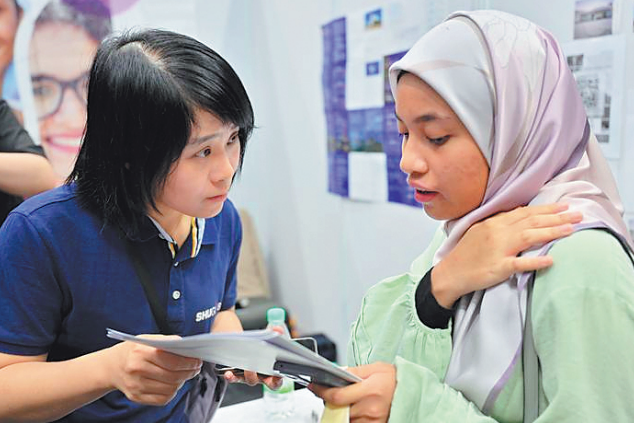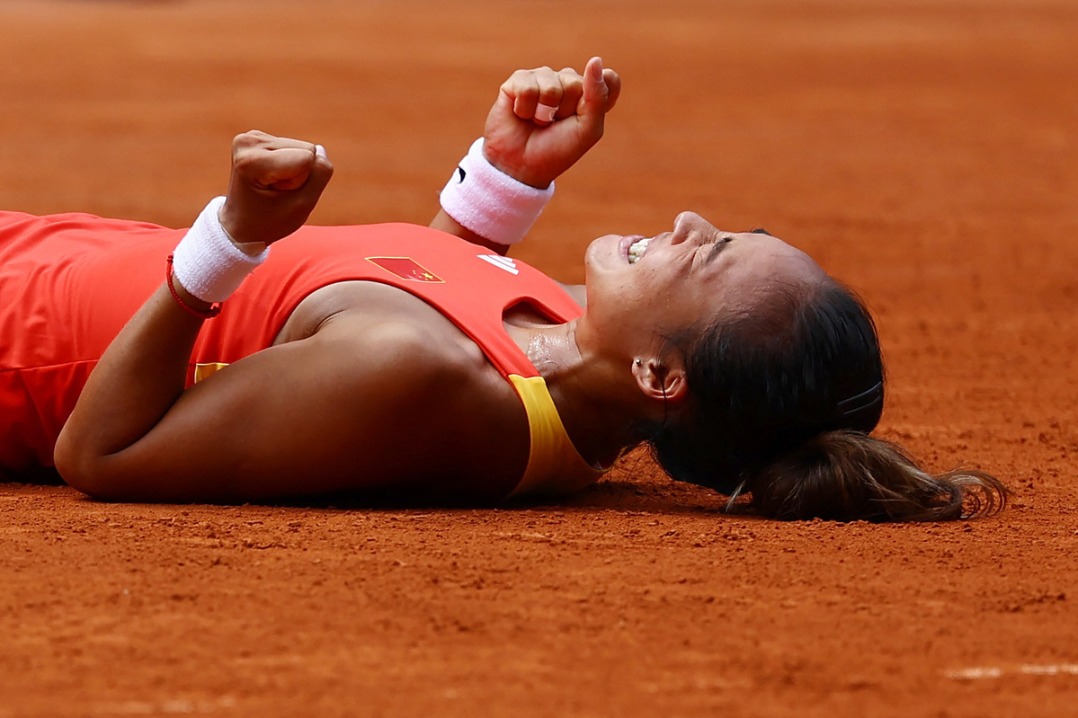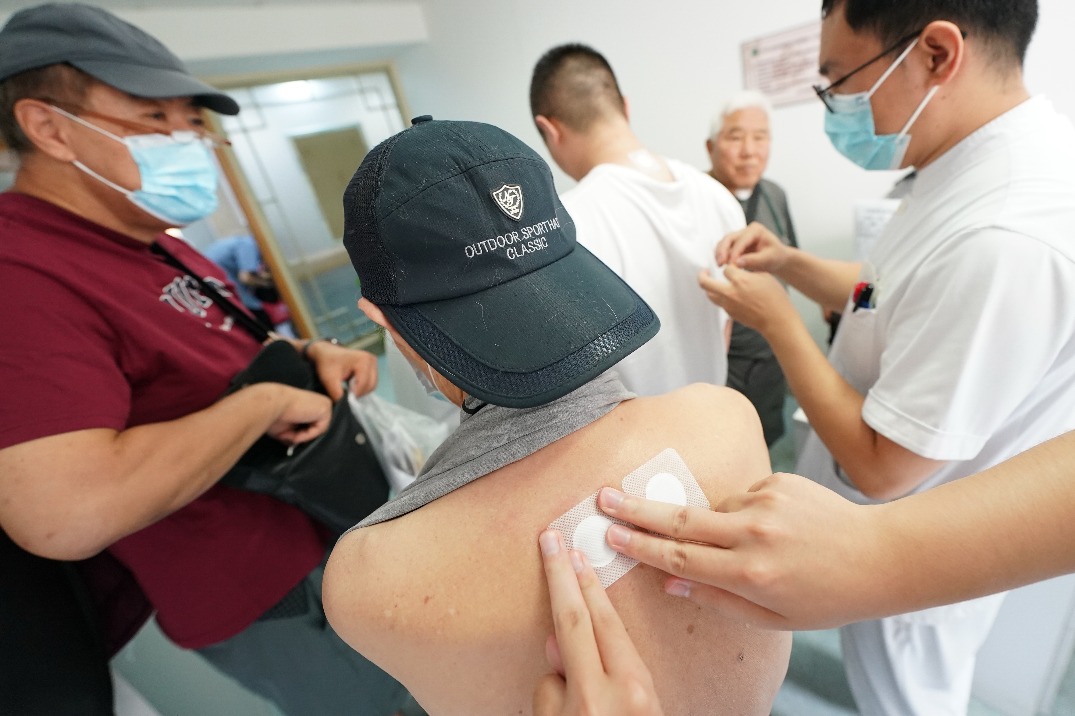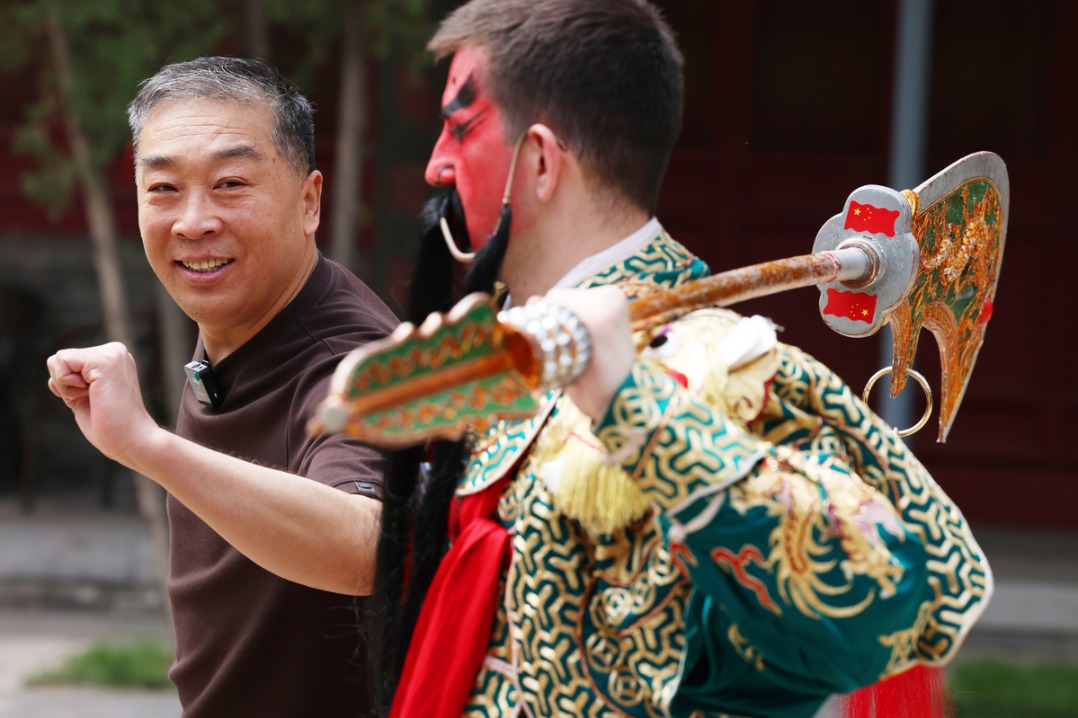Pears pecked by birds present valuable opportunity
By Xu Zhesheng | chinadaily.com.cn | Updated: 2023-07-13 16:11
The high-quality snow pears in Caojia town, Renshou, Sichuan province, won not only orders from across the country, but also the heart of a more eager customer group — the birds.
Caojia town is well-known for its pears. It has more than 1,700 pear trees over 400 years old and the town's annual yield of pears has reached 46,500 metric tons.
With improving environment in the area, the population of birds has been increasing steadily in recent years, which is not always a blessing, especially for local pear growers.
Chen Kai, who runs a farmer cooperative, told Red Star News that he lost more than 30,000 kilograms of pears due to birds' pecking in June, resulting in a direct loss of 500,000 yuan ($69,400).
Chen is not alone in his loss. He is among many local fruit farmers who have suffered from the increasing number of birds. The birds, including Chinese hwamei, light-vented bulbul and magpies, are mostly protected animals for which hunting is not allowed.
Liu Fan, a 31-year-old from Chengdu, began growing pears in Caojia five years ago. His orchard, situated on a small hill, is known for the superior taste of its fruit compared to fruit downhill.
However, due to the nearby bamboo forests and shrubs, the orchard has become a favorite spot for birds.
Liu has attempted various methods to drive away the birds. He purchased devices that imitate the sounds of eagles and dogs, scattered chicken feathers around the orchard and even hang bags resembling dead birds. But the effects were all limited, with birds returning in a few days.
As the cost of installing nets is too high, local farmers now hire people to patrol the orchards and scare away birds by setting off firecrackers. However, the effect was also limited.
Despite suffering losses, locals refused to spray pesticides as that would lower the quality of pears.
For the dilemma facing the pear growers, some have suggested including bird damage to crops in agricultural insurance and formulating detailed compensation regulations.
Others believe that pears pecked by birds should be regarded as an indicator of the fruit's high quality and an opportunity to unleash more value.
Sun Quanhui, a scientist with the World Society for the Protection of Animals, suggested that local governments should provide compensation in cases where wildlife protected by the law cause injuries to people, damage to crops or other property losses.
Sun also encouraged the exploration of methods such as commercial insurance for bird damage prevention and control.
Zhao Li, director of the Insect Museum of West China, told Red Star News that the birds are part of the ecological chain. The fruits they eat are natural, pollution-free and good-tasting. Just like promoting the sale of vegetables that have been bitten by insects as pollution-free vegetables, such promotion can also apply to the snow pears, thereby increasing sales volume and prices.
Zhao added that the villagers in Caojia can also use this opportunity to develop rural sightseeing and leisure activities for urban residents, and even attract photography enthusiasts to come and take pictures of birds.
























